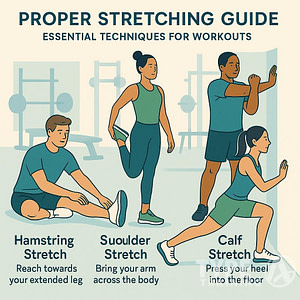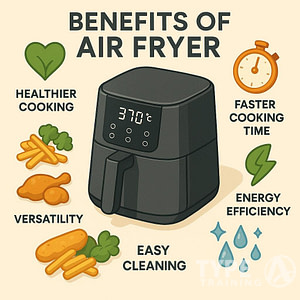Overview
Losing weight effectively involves a combination of scientifically-backed approaches that contribute to both short-term achievements and long-term sustainability. In this section, we’ll discuss nine methods that are proven to aid weight loss, including intermittent fasting, food tracking, mindful eating, consumption of protein-rich breakfasts, reduction of added sugars and refined grains, incorporation of fiber, focusing on gut health, prioritizing sleep, and managing stress.
Intermittent fasting (IF) is a widely recognized eating pattern that alternates between periods of fasting and eating, with methods such as alternate day fasting, the 5:2 diet, and the 16/8 method. Studies have shown that IF can be as effective for weight loss as a daily low-calorie diet when done correctly.
Being aware of what you eat and drink is crucial. One effective method is tracking your daily food intake using a journal or online food tracker. Research has suggested that this practice can lead to positive behavior changes and increased motivation when it comes to weight loss.
Mindful eating is a practice that focuses on paying attention to your eating habits instead of rushing through your meals without considering the food you’re consuming. By eating mindfully, you can create sustainable healthy habits and a better relationship with food.
Popular posts:
A protein-rich breakfast can help control appetite hormones and make you feel full longer. Some healthy high-protein options are eggs, oats, nut and seed butters, quinoa porridge, sardines, and chia seed pudding.
Reducing added sugars and refined grains in your diet is essential for weight loss. Consuming excess sugar, especially in beverages, and refined grains can lead to weight gain. Opt to swap these out for whole-grain alternatives, fresh fruits, and other nutrient-dense options.
Incorporating dietary fiber into your meals can promote satiety, potentially leading to weight loss. Make sure to includewhole-grain cereals, fruits, vegetables, peas, beans, pulses, nuts, and seeds in your diet.
Gut health plays a significant role in weight management. By consuming a diverse range of plant-based foods, fermented foods, and prebiotic foods, you can increase the number of good bacteria in your gut, which may contribute to weight loss.
Getting enough sleep is essential, as insufficient sleep can lead to weight gain by slowing down metabolism and disrupting hunger-regulating hormones.
Lastly, managing stress is an important aspect of weight loss. When stress levels remain high, cortisol can promote fat storage and increased appetite. Managing stress by incorporating relaxation techniques and self-care into your routine can have a positive effect on weight loss.
Maintaining a balance of these scientifically-backed weight loss methods, you can cultivate a sustainable, healthy lifestyle that supports both weight loss and overall well-being.
Intermittent Fasting
Intermittent fasting (IF) is an eating pattern characterized by short-term fasts and a limited eating window. Studies show that intermittent fasting up to 26 weeks can be as effective as a daily low calorie diet for weight loss [^1^]. There are various methods for intermittent fasting:
- Alternate day fasting (ADF): You fast every other day and consume a regular diet on non-fasting days. A modified version includes eating 25-30% of your body’s energy needs on fasting days [^2^].
- The 5:2 Diet: You fast on two days out of every seven, consuming 500-600 calories on fasting days [^3^].
- The 16/8 method: You fast for 16 hours and eat within an 8-hour window, typically between noon and 8 p.m. This method has been shown to decrease calorie intake and promote weight loss [^4^].
On non-fasting days, adopt a healthy eating pattern and avoid overeating. Monitoring your food and drink intake is also helpful, as research suggests that tracking your diet and exercise promotes behavioral changes and increases motivation [^5^].
Mindful eating—which involves paying attention to how and where you eat—can lead to better food choices and help prevent overeating. Eating slowly allows your brain enough time to recognize fullness signals. High-protein breakfasts, such as eggs, oats, and nut butters, are effective in regulating appetite hormones, helping you feel full for longer [^6^].
Reducing added sugars and refined grains in your diet can promote weight management, as excess glucose from rapidly digestible carbs is stored as fat [^7^]. Consuming whole grains instead can increase satiety and lead to a reduction in calorie intake [^8^]. Swap processed foods with healthier, nutritionally-dense alternatives, like fruits, nuts, seeds, and whole-grain products.
A diet rich in dietary fiber can increase feelings of fullness and potentially promote weight loss. Fiber-rich foods include whole-grain cereals, fruit, vegetables, nuts, and seeds [^9^].
Gut bacteria may also play a role in weight management. Some types of bacteria can increase the energy extracted from food, leading to fat deposition and weight gain [^10^]. Consuming a wide variety of plants, fermented foods, and prebiotic foods can increase the diversity of gut bacteria, potentially helping with weight control [^11^].
Getting sufficient sleep is essential for weight management, as insufficient sleep impacts metabolism and hormone regulation, leading to weight gain [^12^]. Managing stress levels is also crucial, as constant stress can increase appetite and promote fat storage due to elevated cortisol levels [^13^].
Tracking Diet and Exercise
When it comes to weight loss, incorporating strategies backed by scientific research is crucial. Two proven methods are keeping track of your diet and exercise, as this encourages behavior changes and increases motivation.
Monitoring your food intake can be done by logging what you eat and drink daily, whether it is in a journal or an online food tracker. Research has consistently shown that tracking dietary habits can lead to significant weight loss.
Exercise is another essential component. Keeping tabs on your physical activities, even with a simple pedometer, has been proven to be effective.
In addition to diet and exercise, embracing mindful eating practices can drastically improve your weight loss efforts. A few mindful eating techniques include:
- Sitting down at a table during meals
- Minimizing distractions (avoid TV, laptops, and phones)
- Eating slowly, savoring each bite, and allowing your brain to recognize fullness signals
For maximum weight loss success, consider implementing high protein meals in your diet, as protein can regulate appetite hormones. Good sources of protein include eggs, oats, nut and seed butters, quinoa porridge, sardines, and chia seed pudding.
Finally, make healthier food choices by replacing highly processed and sugary foods with nutritionally dense alternatives. Swap white rice, bread, and pasta with whole-grain versions, and opt for fruit, nuts, and seeds instead of high sugar snacks. Choosing beverages wisely, such as herbal teas and fruit-infused water, can also contribute to weight loss.
Importance of Strength Training
When aiming to lose weight naturally, incorporating strength training into your fitness routine can make a significant difference. Unlike cardio exercises, which primarily focus on burning calories, strength training helps to build lean muscle mass. This essential component can boost your metabolism, allowing your body to burn calories more efficiently, even while at rest.
To effectively lose weight, consider the following aspects of strength training:
- Compound exercises: Focus on exercises that target multiple muscle groups, such as squats, deadlifts, and bench presses. These exercises help build overall strength and burn more calories during a workout.
- Progressive Overload: Gradually increasing the weight you’re lifting or the number of repetitions will allow you to progressively challenge your muscles and avoid hitting a plateau.
- Consistency: For best results, aim to include strength training sessions in your workout routine at least two to three times per week.
Strength training is not only beneficial for weight loss but also offers additional health benefits, such as improved bone density, enhanced posture, and reduced risk of injuries. By incorporating strength training into your natural weight loss journey, you’re setting yourself up for success and paving the way for a fitter, healthier you.
Mindful Eating
Mindful eating is a valuable approach to weight management, focusing on an individual’s attention to their eating habits and the environment in which they consume food. By paying extra attention to the physical cues, experiences, and cravings associated with eating, people can develop a healthier relationship with food and potentially see positive changes in their weight.
With today’s fast-paced lifestyles, many of us eat while on the go, multitasking at work, or watching TV, which makes it hard to notice and appreciate the food we consume. Incorporating mindful eating techniques can help alter this behavior, leading to more thoughtful food choices and a potentially reduced risk of overeating.
Some helpful mindful eating practices include:
- Sitting down to eat at a table – Give your full attention to the meal and enjoy the experience of eating.
- Avoiding distractions – Turn off the TV, laptop, and phone while eating to remain present in the moment.
- Eating slowly – Take your time to chew and savor each bite. By doing so, you give your brain enough time to register fullness, which in turn, may help prevent overeating.
- Making nourishing food choices – Select foods rich in essential nutrients that will leave you satisfied for longer periods.
Additionally, integrating a high-protein breakfast into your daily routine can help regulate appetite hormones and keep you feeling full throughout the day. Healthy options for a high-protein breakfast include eggs, oats, nut and seed butters, quinoa porridge, sardines, and chia seed pudding.
It is also crucial to be mindful of the sugars and refined grains in your diet. Consuming excessive amounts of these types of food can lead to weight gain over time. Opting for more nutritionally dense options, such as whole grain rice, bread, and pasta, can be an effective food swap for weight management. Similarly, replacing high sugar snacks and beverages with fruit, nuts, seeds, and herbal teas can make a significant difference.
Prioritizing fiber in your diet can be another useful strategy. Fiber-rich foods, like whole grains, fruits, vegetables, peas, beans, nuts, and seeds, can increase feelings of fullness and contribute to achieving your weight loss goals.
Remember that focusing on proper sleep, stress management, and physical activity are essential factors in your overall weight management journey. Taking a holistic approach, including mindful eating, is an effective way to achieve sustainable and healthy weight loss.
Protein with Meals
In order to lose weight effectively and healthily, it is crucial to incorporate protein into your meals. Drinking more water and planning higher protein meals can be beneficial as they induce feelings of fullness and positively impact your appetite-regulating hormones. These benefits largely stem from the hormone ghrelin decreasing and satiety hormones, namely peptide YY, GLP-1, and cholecystokinin, increasing[^ProteinHormoneEffects^].
Breakfast is an especially important meal for high protein intake because it can affect your appetite throughout the day. Some great choices for a protein-rich breakfast include eggs, oats, nut and seed butters, quinoa porridge, sardines, and chia seed pudding[^HighProteinBreakfast^].
When devising meal plans, individuals should prioritize nutrient-dense foods over highly processed and sugary options. For example, you might consider swapping white rice, bread, and pasta for whole-grain alternatives[^WholeGrain^]. Additionally, opting for herbal teas and fruit-infused water may ultimately prove more satisfying than sodas containing high sugar concentrations.
Fiber-rich foods play an essential role in increasing feelings of fullness and promoting healthy weight loss. Some examples of fiber-rich foods are whole-grain cereals, fruits, vegetables, peas, beans, pulses, nuts, and seeds[^FiberInDiet^].
Moreover, the gut’s bacteria play a crucial role in weight management. A diverse assortment of plant-based foods, fermented foods like kimchi or kefir, and prebiotic fibers found in fruits, vegetables, and grains can help maintain a balanced microbiome and support healthy weight loss[^GutBacteria^].
In conclusion, incorporating protein into your meals, prioritizing nutrient-dense foods, consuming high-fiber foods, and promoting a healthy gut microbiome can all contribute to effective weight loss. Besides, practicing mindful eating habits, getting sufficient sleep, and managing stress will further support your weight loss goals.
More Fiber
Including more fiber in your diet can be an effective approach to lose weight naturally. Numerous studies have shown that consuming higher amounts of fiber can aid in weight loss and overall health improvements. In this section, we’ll discuss various ways for you to integrate fiber into your daily meals.
- Choose whole grains: Opt for foods made with whole grains, such as whole wheat bread, brown rice, and quinoa. These contain more fiber than their refined counterparts like white bread and white rice.
- Increase fruit and vegetable intake: Incorporate fruits and vegetables into your meals and snacks, as they are rich in fiber. Aim for at least 5 servings per day. You can add berries to your breakfast cereal, have an apple for a snack, or enjoy a salad for lunch.
- Consume legumes: Beans, lentils, and peas are excellent sources of fiber. Use them as a protein substitute or add them to dishes like soups, stews, and salads for an extra fiber boost.
- Snack on nuts and seeds: Almonds, pistachios, chia seeds, and flaxseeds are high in fiber. Add them to your diet as a snack or mix them into your meals for both texture and nutritional value.
- Incorporate fiber-rich foods gradually: While fiber is beneficial for weight loss, adding too much at once can cause digestive discomfort. Gradually increase your fiber intake to allow your body to adjust to the new diet.
Here is a simple table showing a few fiber-rich foods and their fiber content:
| Food | Fiber Content (grams per serving) |
|---|---|
| Black beans | 15g/1 cup |
| Raspberries | 8g/1 cup |
| Popcorn | 3.5g/3 cups |
| Almonds | 3.5g/1 ounce |
| Whole wheat bread | 2g/1 slice |
Remember, integrating more fiber into your diet is an easy and effective way to lose weight naturally. Examine your current eating habits and look for opportunities to replace low-fiber foods with more fiber-rich options. Your waistline and overall health will thank you!
Drinking Water
One effective method of weight loss that scientific research supports is intermittent fasting (IF), which involves short-term fasts and consuming meals within a smaller time frame during the day. Short-term IF, lasting up to 26 weeks, has been found to be as effective for weight loss as following a low-calorie daily diet [^1^]. Common IF methods include:
- Alternate day fasting: Fast every other day and eat a regular diet on non-fasting days.
- The 5:2 Diet: Fast on 2 out of every 7 days, eating 500-600 calories on fasting days.
- The 16/8 method: Fast for 16 hours and eat during an 8-hour window, such as from noon to 8 p.m.
Incorporating mindful eating techniques, such as sitting at a table, avoiding distractions, eating slowly, and making healthy food choices, can also contribute to weight loss [^2^]. Paying attention to the experience of eating and recognizing when you’re full can prevent overeating.
Ensuring your meals are protein-rich helps regulate appetite hormones and make you feel full longer [^3^]. Some good high-protein breakfast choices include eggs, oats, nut and seed butters, quinoa porridge, sardines, and chia seed pudding. When planning meals, try to choose whole grains over refined grains to limit rapid glucose production, which promotes fat storage [^4^]. Make sure to also include plenty of fiber-rich foods like fruits, vegetables, whole-grain cereals, and nuts and seeds.
Adding more probiotic and prebiotic foods to your diet can promote a healthy gut microbiome, which may impact weight management [^5^]. Some beneficial foods include:
- A wide variety of plant foods
- Fermented foods like sauerkraut, kimchi, kefir, yogurt, tempeh, and miso
- Prebiotic fiber from fruits, vegetables, oats, and barley
Moreover, getting sufficient sleep is crucial for weight loss [^6^]. Inadequate sleep can lead to poor metabolism, increased cortisol levels, and an imbalance in appetite-regulating hormones, causing weight gain. Remember to manage stress as well because it can trigger hormonal changes that promote fat storage [^7^].
To summarise, adopting healthy strategies such as intermittent fasting, mindful eating, incorporating protein and fiber-rich foods, focusing on gut health, and getting enough sleep and managing stress can contribute to effective weight loss and improve overall well-being.
Avoid Sugar
An essential aspect of weight loss is limiting your intake of added sugars, which are often found in processed foods and beverages. Consuming too much sugar can lead to weight gain and obesity, mainly when it comes to refined grains such as white rice, white bread, and regular pasta. To avoid these pitfalls, focus on consuming whole grains and avoiding sugary snacks and drinks.
Make smart food swaps, such as:
- Opting for whole-grain rice, bread, and pasta instead of white versions
- Choosing fruit, nuts, and seeds over high-sugar snacks
- Drinking herbal teas and fruit-infused water rather than sugary sodas
- Preparing smoothies with water or milk instead of fruit juice
Additionally, incorporate more fiber-rich foods in your diet to help you feel full and promote weight loss. Examples of fiber-rich foods include whole-grain breakfast cereals, whole-wheat pasta, whole-grain bread, oats, barley, rye, fruits, vegetables, peas, beans, pulses, nuts, and seeds.
Another factor to consider is the role of gut bacteria in weight management. Some foods can increase the number of good bacteria in your gut, contributing to a healthy weight. Include a wide variety of plants, fermented foods, and prebiotic foods in your diet to foster a diverse set of gut bacteria. Examples of these foods include sauerkraut, kimchi, kefir, yogurt, tempeh, miso, chicory root, artichoke, onion, garlic, asparagus, leeks, banana, and avocado.
Incorporating these changes into your diet, as well as following a healthy exercise routine, getting enough sleep, and managing your stress levels, will help you achieve your weight loss goals. Remember to be mindful of your eating habits, listen to your body’s signals, and stay consistent with your efforts to see the best results.
Gut Bacteria Balance
One important aspect of weight loss is maintaining a healthy gut bacteria balance. There’s an emerging area of research focusing on the role of gut bacteria in weight management. The human gut hosts a vast number of microorganisms, including approximately 39 trillion bacteria1. Every individual has unique types and amounts of bacteria in their gut, and some types may affect the energy extracted from food, potentially leading to fat deposition and weight gain.
To promote a healthy gut bacteria balance, it’s essential to introduce specific foods into your diet. These foods can increase the number of good bacteria in your gut, which may help with weight management.
- Diverse Plant Foods – Aim to make vegetables and other plant-based foods comprise 75% of your meal. Including a wide variety of fruits, vegetables, and grains in your diet can help increase your fiber intake and promote a more diverse set of gut bacteria.
- Fermented Foods – Foods like sauerkraut, kimchi, kefir, yogurt, tempeh, and miso contain potentially probiotic microorganisms. Limited evidence suggests that some fermented foods, such as kimchi2 and kefir3, may have anti-obesity effects.
- Prebiotic Foods – These stimulate the growth and activity of good bacteria that aid weight control4. Prebiotic fiber is found in many fruits and vegetables, especially chicory root, artichoke, onion, garlic, asparagus, leeks, banana, and avocado. It’s also present in grains like oats and barley.
Besides incorporating the above foods into your diet, sleep and stress management also play a significant role in weight loss. Multiple studies have shown that getting fewer than 5–6 hours of sleep per night is associated with an increased incidence of obesity5. Stress releases hormones, such as adrenaline and cortisol, that can initially decrease appetite. However, under constant stress, cortisol remains in the bloodstream for longer, increasing appetite and promoting fat storage6.
In conclusion, focusing on gut bacteria balance by including diverse plant foods, fermented foods, and prebiotic foods in your diet, combined with proper sleep and stress management, can effectively aid in weight loss.
Footnotes
- https://theconversation.com/microbiome-good-gut-bacteria-really-could-help-you-lose-weight-new-study-168036 ↩
- https://www.mindbodygreen.com/articles/23-gut-friendly-foods-that-are-great-for-natural-weight-loss ↩
- https://connect.mayoclinic.org/blog/weight-management-1/newsfeed-post/building-a-healthy-gut-microbiome/ ↩
- https://www.healthline.com/nutrition/microbiome-diet ↩
- https://www.healthline.com/nutrition/sleep-and-weight-loss ↩
- https://www.medicalnewstoday.com/articles/320854 ↩
Managing Stress
It is essential to understand that stress can have a significant impact on your weight loss journey. Stress can cause hormonal imbalances, which can affect your appetite and lead to weight gain by increasing the production of cortisol. Cortisol can make you crave fatty and sugary foods and decrease overall weight loss efficiency. To effectively manage stress, consider incorporating the following practices:
- Practicing mindful eating: Be present and pay attention to the food you eat. Sit at a dining table, avoid distractions like TV or phone, and eat slowly to savor each bite. Eating mindfully allows you to recognize satiety cues, prevents overeating, and enhances your overall dining experience.
- Keeping track of food intake: Use a journal or an online food tracker to monitor your daily meals and beverages. Tracking your consumption patterns can help you make healthier choices, increase motivation, and instigate beneficial behavior changes. Research has also shown that tracking physical activity contributes to successful weight loss.
- Incorporating high protein breakfast: Consuming a protein-rich breakfast has shown to be effective in regulating appetite hormones and promoting a feeling of fullness for several hours. Choose protein sources such as eggs, oats, nut and seed butter, quinoa porridge, sardines, and chia seed pudding to start your day.
- Focusing on fiber-rich foods: Including fiber in your diet can make you feel full, potentially assisting weight loss. Opt for fiber-dense options like whole-grain cereals, whole-wheat pasta, whole-grain bread, oats, barley, rye, fruits, vegetables, peas, beans, pulses, nuts, and seeds.
- Improving gut health: A diverse and healthy gut microbiome can play a significant role in weight management. Consume a wide variety of plant-based foods, fermented foods like sauerkraut, kimchi, kefir, yogurt, tempeh, miso, and prebiotic-rich foods like chicory root, artichoke, onion, garlic, asparagus, leeks, banana, avocado, oats, and barley to support your gut health.
- Prioritizing sleep: Getting quality sleep of at least 5-6 hours per night is crucial in preventing obesity. Insufficient or poor-quality sleep can slow down metabolism, promote insulin resistance, and disrupt appetite-regulating hormones like leptin and ghrelin.
Managing stress, along with adopting healthy eating and lifestyle habits, can increase the effectiveness of your weight loss efforts and contribute to overall well-being. Remember to find a balance that works for you and maintain a positive mindset throughout your journey.
Get More Sleep
Sleep plays a significant role in weight management, and science supports this relationship. When you don’t get enough sleep, which for most adults is usually less than 5-6 hours per night, the risk of obesity increases (source). There are several reasons for that, and it is essential to understand them.
Sleep affects your metabolism, the process through which your body converts calories to energy. Insufficient or poor-quality sleep may slow down your metabolism, causing the body to store unused energy as fat (source). Moreover, poor sleep can promote insulin resistance and increase cortisol levels, further contributing to fat storage.
Another essential factor is the regulation of appetite-controlling hormones, leptin and ghrelin (source). Leptin is responsible for sending fullness signals to your brain. When you don’t get enough sleep, the balance between these hormones may be disrupted, resulting in increased appetite and higher chances of overeating.
Stress is also closely related to sleep and weight management. When you are under constant stress, your body produces more cortisol, which increases your appetite and can lead to consuming more calories, often in the form of carbohydrates (source). In the long run, this could result in weight gain and difficulties in losing weight.
To improve your sleep and support your weight loss efforts, consider implementing the following strategies:
- Stick to a consistent sleep schedule, aiming for 7-9 hours of sleep per night.
- Create a comfortable sleep environment, with the right temperature, lighting, and noise levels.
- Limit caffeine consumption in the afternoon and evening.
- Avoid electronic devices at least an hour before bedtime.
- Develop a relaxing bedtime routine, such as reading or taking a warm bath.
By prioritizing sleep in your daily routine, you can increase the chances of successful weight loss and maintain a healthy lifestyle.
Mindset
A crucial aspect of weight loss that is often overlooked is the importance of a positive mindset. The way you think and feel about losing weight, including your beliefs, attitudes, and thoughts about yourself, plays a critical role in your ability to adopt healthy habits and stay committed to your goals.
Your mindset not only influences your motivation, self-esteem, but also affects your behavior and decision-making. With a negative mindset, it’s more likely that you’ll give up on your goals or engage in unhealthy behaviors, such as emotional eating or skipping workouts. In contrast, a positive mindset keeps you motivated, making healthy choices, and sticking to your weight loss plan. Research supports the idea that a positive mindset can lead to better weight loss outcomes.
To cultivate a positive mindset for weight loss, consider adopting the following practices:
- Emphasize on progress over perfection: Remember that weight loss is a journey with its own set of challenges and setbacks. Focus on making continuous progress rather than achieving an idealized notion of perfection.
- Be compassionate with yourself: Treat yourself with kindness, understanding, and respect, just as you would with a friend.
- Set realistic goals: Create achievable, incremental goals that lead to steady progress. Follow the SMART goals framework (Specific, Measurable, Achievable, Relevant, and Time-bound).
- Celebrate your achievements: Acknowledge and celebrate your accomplishments, however small they may be.
- Build a supportive network: Seek encouragement and motivation from friends, family members, or supportive groups during your weight loss journey.
- Practice mindfulness: Stay present, pay attention to your thoughts and feelings without judgment, and avoid dwelling on past mistakes or worrying about future outcomes.
- Maintain a positive attitude: Focus on your abilities and accomplishments instead of dwelling on what you can’t do or haven’t achieved.
Incorporating these practices can help you develop a mindset that supports your weight loss efforts. By staying motivated, practicing self-compassion, setting realistic goals, celebrating your successes, surrounding yourself with support, being mindful, and maintaining a positive attitude, your journey towards weight loss can be more effective and enjoyable.
Frequently Asked Questions
What Foods Promote Natural Weight Loss?
Incorporating nutrient-dense, low-calorie foods into your diet can help you effectively lose weight naturally. Some examples of such foods include:
- Leafy greens like spinach, kale, and lettuce
- High fiber fruits like apples, berries, and pears
- Protein-rich legumes like lentils, chickpeas, and black beans
- Healthy fats from avocados, nuts, and seeds
- Lean meats, fish, and tofu
Which Beverages Aid Natural Weight Loss?
Drinking the right liquids is crucial for natural weight loss. Focus on these hydrating and healthy options:
- Water – it keeps you full and aids in digestion
- Green tea – it boosts metabolism and is packed with antioxidants
- Black coffee – it may increase your calorie-burning potential
- Vegetable juices – they provide essential nutrients without high calories
Related: Running Water Bottles: The Best Options for Hydration on the Go
What Exercises Support Natural Weight Loss?
Incorporate regular physical activity to help burn calories and achieve natural weight loss. Some effective exercises include:
- Walking or running
- Swimming
- Cycling
- Weight lifting
- Yoga or Pilates
- High-intensity interval training (HIIT)
Are There Quick Natural Weight Loss Home Remedies?
Although there’s no magic solution or shortcuts, certain lifestyle changes and home remedies can accelerate your weight loss journey:
- Start your day with lemon water or apple cider vinegar
- Get enough sleep to help regulate hunger hormones
- Drink herbal teas, such as fennel or ginger, to aid digestion
- Eat mindfully and practice portion control
- Stay consistent with exercise
How to Reduce Belly Fat Naturally?
Targeting belly fat requires a combination of healthy eating, regular exercise, and stress reduction. Focus on the following strategies:
- Include more soluble fiber in your diet
- Avoid sugary foods and drinks
- Increase protein intake
- Practice stress management techniques, such as meditation and deep breathing
- Incorporate cardio and strength training exercises
What Are the Best At-Home Methods for Natural Weight Loss?
Achieving natural weight loss at home is possible by making simple changes to your lifestyle. Consider these tips:
- Prepare balanced, home-cooked meals using whole, unprocessed ingredients
- Establish a regular exercise routine, even if it’s just walking or bodyweight exercises
- Stay accountable by tracking your progress through a journal or app
- Utilize online resources, such as exercise videos or support groups
- Set realistic goals and celebrate small victories along your weight loss journey

















